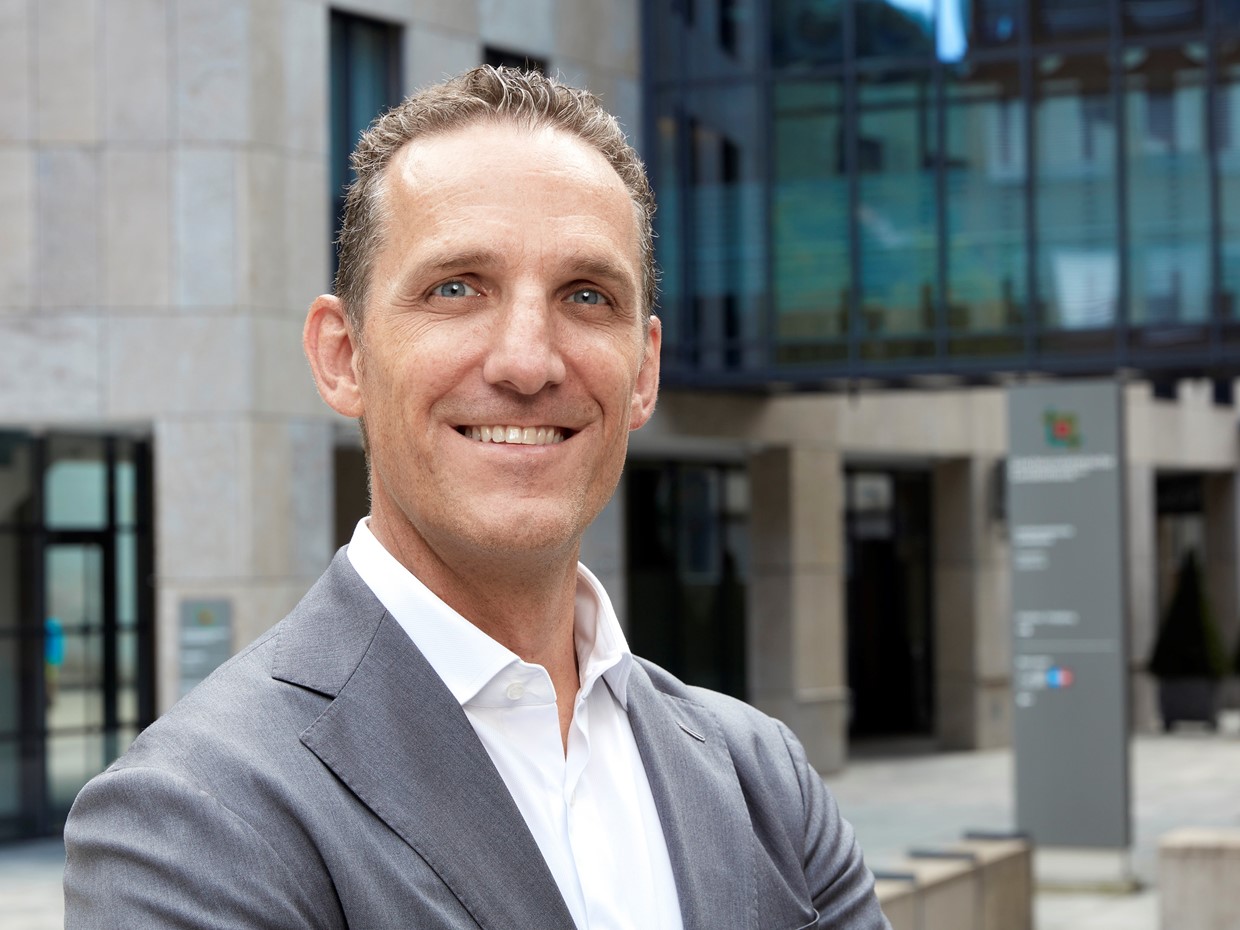Information checkedInformation unaudited Information geprüft Information ungeprüft Employee satisfaction as a success factor


We’ve claimed the top spot in the Swiss Arbeitgeber Award (Swiss Employer Award) – but, of course, there’s always room for improvement. Over the course of several workshops, Group management and employees analysed the relevant topics; these topics have already been showcased on the intranet.
We spoke to Group CEO Gabriel Brenna and asked him how important employee satisfaction is and what impact it has on a company’s success.
Gabriel, why do you think it’s important to respond to the results of the employee survey, despite securing the top spot?
First of all, we can be proud of where we stand. In principle, our employees give us good marks: this means that we’ve done a lot of things right in the past. Nevertheless, we can still make improvements in various areas. And why is this so important for our success? Because our employees are our most important success factor. As a fully service-driven company, the quality of our employees is a key factor that sets us apart from our international competitors. That’s why it’s important for us to be able to attract the best talent to LLB, support these individuals and retain them in the long term.
How is this different compared to an industrial enterprise?
A manufacturing company really sets itself apart via its product innovations and the uniqueness of its products. In banking, success lies in the trust of our clients and the quality of our services and advice. That’s a big difference. But I think having motivated and satisfied employees is crucial for every company.
“The quality of our employees and their satisfaction make a difference."
Gabriel Brenna, Group CEO
Let’s talk about “Work and Leisure”: during the workshop, some employees said there were too many projects and too few resources. In your opinion, how would it be possible to counter this?
Indeed, lots of activities and projects are running in parallel and our resources are sometimes somewhat squeezed. This is also something we want, to a certain extent, so we can achieve our strategic objectives and increase our efficiency and profitability. But the key question revolves around what we can do better. I see two main areas here:
First, prioritising topics – we need to focus even more on the really urgent, important tasks and have the courage to say “no” or “later”, too. This starts with us in Group management. Second, efficient collaboration – how can we simplify our processes and collaborate more effectively? Every now and then, we are a bit too bureaucratic and inefficient.
)
The Swiss Arbeitgeber Award (Swiss Employer Award) is also good advertising for attracting new employees. But it’s just as important to retain existing talent?
I see LLB as a company that embodies values with which our employees identify. LLB offers a working environment characterised by collegiality, positive spirit, respect and integrity. Employee satisfaction is important to us – because we recognise the importance of this and not because it’s a marketing tool.
We want to improve ourselves wherever it is useful and possible to do so, and we are open to forging new paths. That said, employee satisfaction and economic reality must be linked to each other.
Let’s look to the future. The buzzword “new work” is on everyone’s lips. How flexible does an employer have to be – for example with regard to new working time models?
The pandemic taught us that working from home isn’t a death sentence for efficiency. Before 2020, no one would have thought that working from home would be normal. On the one hand, working remotely increases the flexibility with which work, family and leisure can be reconciled. On the other hand, it also places more demands on managers and collaboration within the team. Each model has its pros and cons.
In principle, however, we should remain open to new working time models and see if they make sense for us.
Further workshops on the employee survey will be held in August. What are your expectations of these workshops, and what role do employees play in them?
Employees play a central role. The first round of these workshops took place in December. Our goal was to get direct input from employees so we could better understand crucial topics. Now it’s about not just discussing problems, but finding tangible solutions. Over the next few workshops, we want to test out the initial thoughts and ideas, generate new ideas and gather feedback from employees as to whether we are on the right track.
May we take a look at your responses to the employee survey? What did you consider critical?
I also find “Work and Leisure” very important and, unsurprisingly, it is the top topic. But I’m also concerned by the ever-increasing complexity of our processes. Some of this is due to external regulatory requirements, but this doesn’t really explain the whole issue. This is precisely why we founded our cultural journey with the aim of “acting as if it were your bank”. We need to be open and solution-oriented and think outside the box more. We still have a lot of potential in this respect.
However, I gave better marks for “Internal Communication” and “Workplace and Equipment”.
What’s next, in specific terms?
We are in the process of finding a solution, and our ideas will be expanded and reflected on with our employees in August. We would like to define concrete measures for the three topics by the end of the year. Our goal? Less is more. This means that we don’t want to action 100 measures: we’d prefer to roll out a smaller number of good ones. We’d like to be on track in this regard no later than the Group Forum 2025.
Follow-up measures
Various improvements across the three areas of “Work and Leisure”, “Internal Communication” and “Workspace and Equipment” will be rolled out by the Group Forum 2025. Further workshops with employees are also scheduled for August to discuss the measures planned.
You can find all the information about the follow-up measures on the intranet.